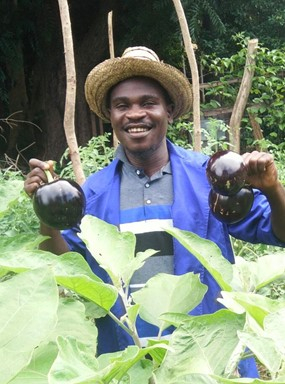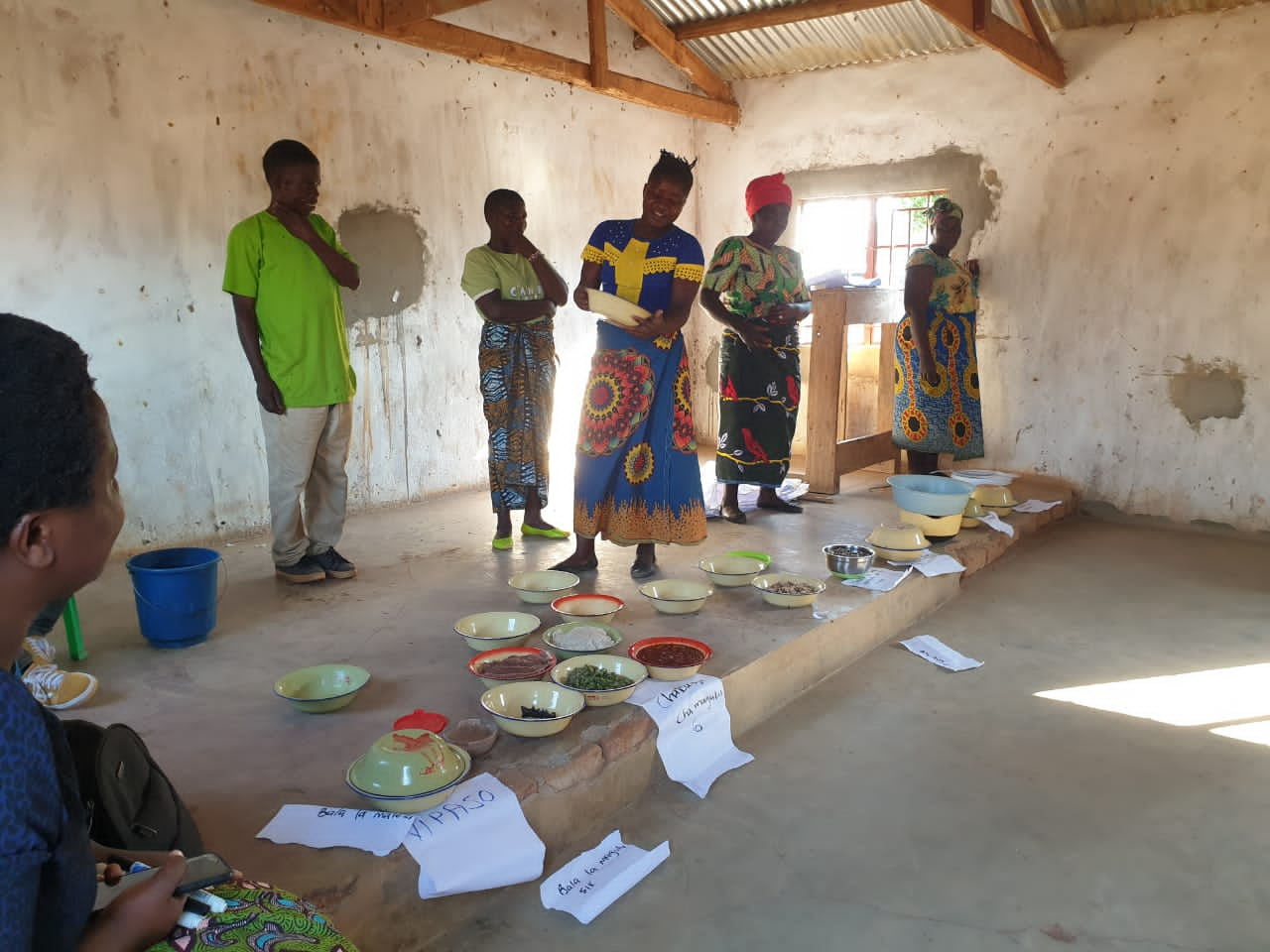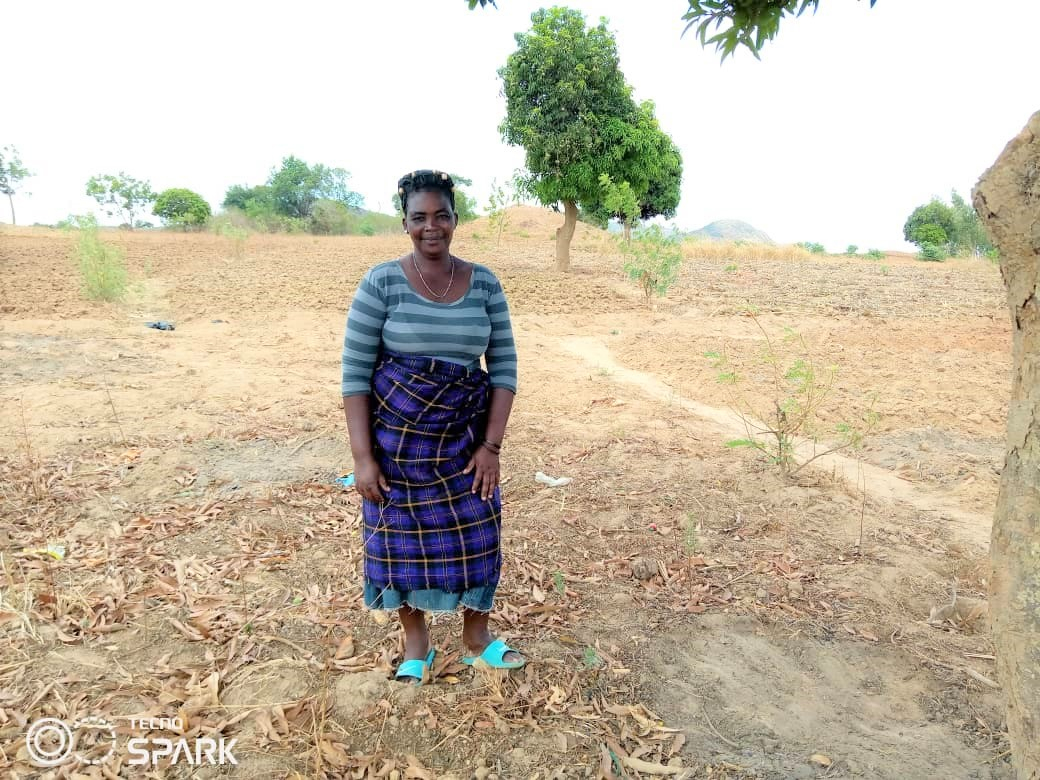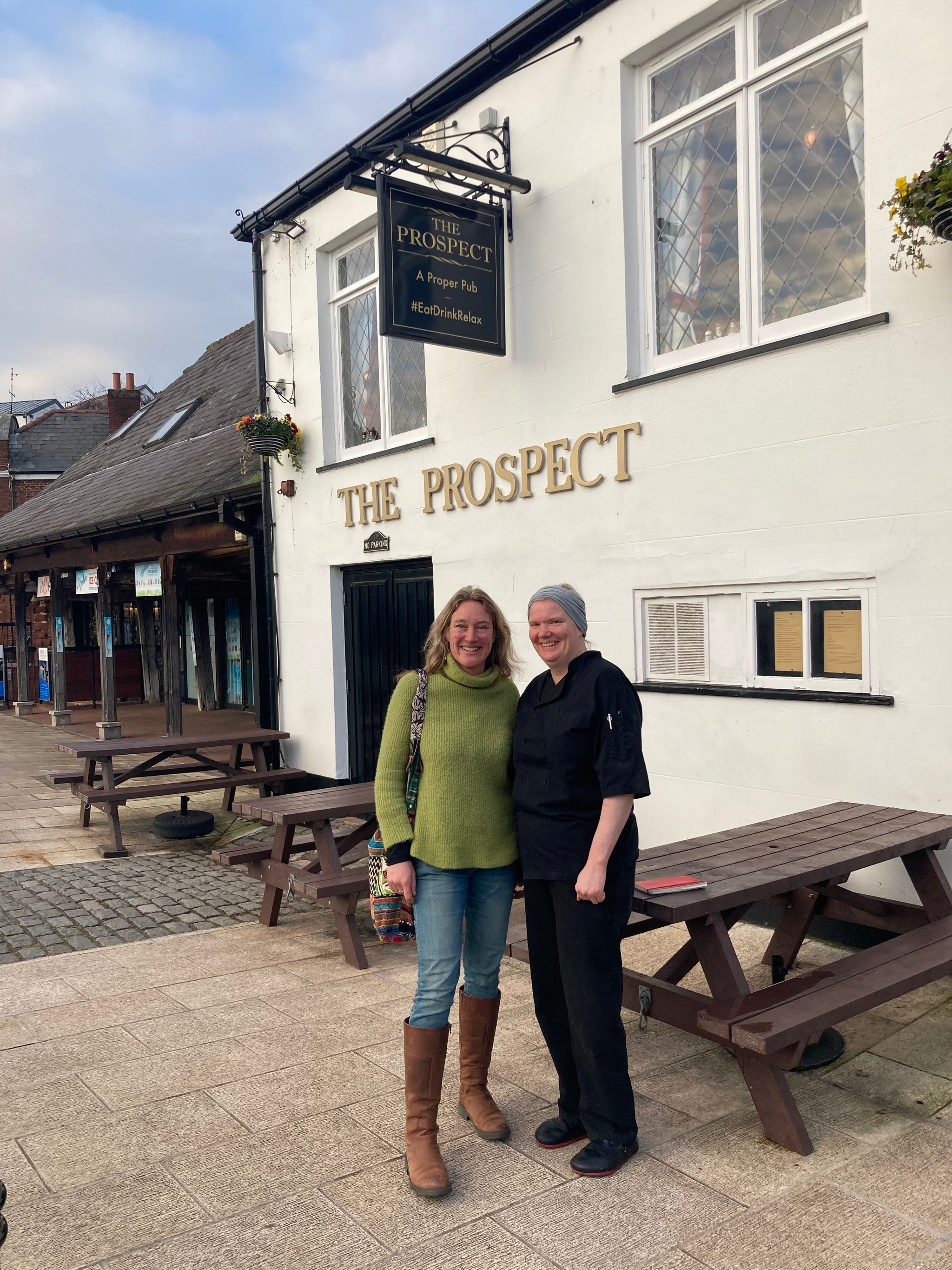January newsletter
12 January 2023
Happy New Year from all of us at Tiyeni!
Meet Eddie the Farmer
Eddie Nyamwela is a young farmer who lives and farms in Bongolo, on the shores of Lake Malawi. As the Bongolo area doesn't yet have face-to-face training anywhere near, Eddie has had to develop a very different route to Deep Bed Farming. We spoke to him to find out more.
How did you first hear about Deep Bed Farming? What inspired you to try it?
It was in 2019 when I heard about the Deep Bed Farming technology through Colin Andrews, my scout leader. By lucky chance, Colin is also the Chair of Tiyeni’s Board of Trustees.
I had a small field where I was growing different crops and in one of our conversations on WhatsApp, I mentioned something about my field. Colin was very interested and asked about the crops, my farming methods and how I controlled the diseases and pests. I explained the activities that were taking place and sent him some photos via WhatsApp. When he saw the photos, he saw that my crops were not growing well, they were not well mulched and that the water evaporation was high. He also noticed that my field had a Hard Pan and he explained that this affects the penetration of roots into the soil and encourages soil erosion, resulting in poor growth.
He introduced me to the Deep Bed Farming system. I was hungry for knowledge that could improve my farming system and harvest a good yield. He shared Tiyeni’s website with me where I read more about Deep Bed Farming and its impact on many people. It was amazing to see how people testified to the good outcome of the farming method and this pushed me into giving it a try.

Tiyeni doesn't have any in person training in Bongolo or anywhere near, so how have you been learning about Deep Bed Farming?
In Bongolo there is no face-to-face training so I have been learning through WhatsApp and the Tiyeni website. The website is quite clear and simple to understand the content. This online learning has been quite easy as I have been learning the everything on my phone. The only challenge I faced has been the issue of network and sometimes electricity but everything else has been great.
You've developed a thriving business over the last couple of years. Tell us more about it.
Deep Bed Farming has enabled me to produce healthy and attractive vegetables and other crops. In our area vegetables are quite expensive in the market because very few farmers grow vegetables. People go far North and Central part of Malawi to get vegetables which are sold in our area. This makes vegetables more expensive.
I don't take my vegetables to the market but instead I have been creating my own market which pays well. I talked to the hotels and lodges by the lake to make deals with them so that they buy fresh vegetables from my farm. Once they saw samples, they were impressed with the quality and they agreed that every week I will supply them with vegetables. There are also people residing along the lake so I’ve set up a vegetable box scheme so that I supply them with fresh vegetables in a box. People book ‘fresh in a box’ via WhatsApp or phone calls and every week I deliver the vegetables to so many households around.
What do you think is key to your success?
Being open to new things and hungry to acquire relevant education and skills have been my main keys for my success. I have been following step-by-step on the Tiyeni website to put Deep Bed Farming into implementation.
How are you sharing your expertise with other young farmers in the area?
More and more young people are inspired by what I’m doing especially with the new farming technology and the way I have established my farming business. Young people (and old!) visit my field to learn the basics of Deep Bed Farming. I have set up a WhatsApp group ‘Farm with Eddie’ as well as a Facebook page The Eddie Farmer where I am able to teach young people about Deep Bed Farming. More young people are trying it in their fields both locally and in different parts of Malawi.
Training for all the family

Tiyeni, in collaboration with the District Agriculture Office, has recently conducted a two-day workshop on gender and nutrition in Emsizini. Eighty farmers (41 female and 39 male) took part to learn more about taking on family roles together, how youth can get involved in Deep Bed Farming, how they can transition from small to large Deep Bed fields, how to utilize leguminous cover crops and how to make the most of locally available foods. We asked one of the participants how she got on.
Thandi Mwanza was one of the workshop participants. She has been using Deep Bed Farming for more than five years. Two months after the training, we went back to see the impact of the training.
She told us that the main things that she learned were how to budget as a family, preparation of the six food groups, how to develop and manage a backyard garden and how to work together in farming and household chores.

How have you been able to apply this in your home and farm?
We are able to plan as a family. Previously, my husband was responsible for budgeting everything for the family (even the type of crops to plant was decided by my husband) but now after training, we come together as a family and plan.
There is no separation of household duties: men are now able to prepare food for the family. My husband does not have to wait for me to cook food since I am always busy training farmers because I am a Community Based Facilitator. We decided to share home duties but my husband still does the duties that require high energy.
Four farmers from the group now have backyard gardens as we learned that it is important for a person to eat vegetables each and every day.
What difference the training has made?
The training really opened my eyes in many aspects, like for example we now make juice from different fruits, milk from soya beans, our children are now growing healthy and eat more healthily because every day we eat six food groups or at least four food groups.
And in the fields as well, men are now starting to take part in Deep Bed Farming. We still have a long way to go but they are now helping us with land tillage as well as digging pits for manure. We will continue sensitising men in our community to take part in farming since most of the farming groups are still dominated by female farmers.
1% is a really big number

The Prospect in Exeter is one of our strongest business supporters and they have been supporting us through 1% for the Planet since May 2022. Tiyeni trustee, Mel Bradley, visited them recently to thank them for all their support and find out more.
Our key connection is 1% for the Planet, a global network of businesses, individuals and environmental partners who have come together to tackle the planet’s most pressing environmental issues.
Tiyeni is a certified 1% for the Planet non-profit partner (here’s our profile) so when colleagues at The Prospect were looking for a partner who met their criteria, they found us! We’re proud to take our place among this global network working to address the most urgent environmental issues of our time. Started in 2002, business and individual members have given hundreds of millions of dollars to approved non-profit partners to date.
Suzanne Abrey-Cameron, Company Director at The Prospect, said:
"As we are in the hospitality industry and our purpose is to feed people, we wanted to find a charity that was involved in nourishment and essential food production, whilst helping to restore the health of the soil and our planet. Tiyeni fits that bill perfectly and we are delighted to be supporting their important work through 1% for the Planet."
The support that The Prospect has given to date has enabled us to train fifty farmers and their families, lifting them out of poverty and helping to set them and their children up for life. Their support has also helped us to help farmers deal with the effects of climate change by making crops and soils more resilient and retaining and storing water underground.
If your business would like to consider supporting Tiyeni through 1% for the Planet, or if you would just like to find out more, you can access the 1% for the Planet website here.
Still looking to make a New Year resolution?
Our work is only possible thanks to you, our dedicated supporters. Please consider making a monthly donation via Paypal at the link below to help us lift a farmer, or a family, in Malawi out of poverty and set them up for life. Just £5 a month can make a huge difference.